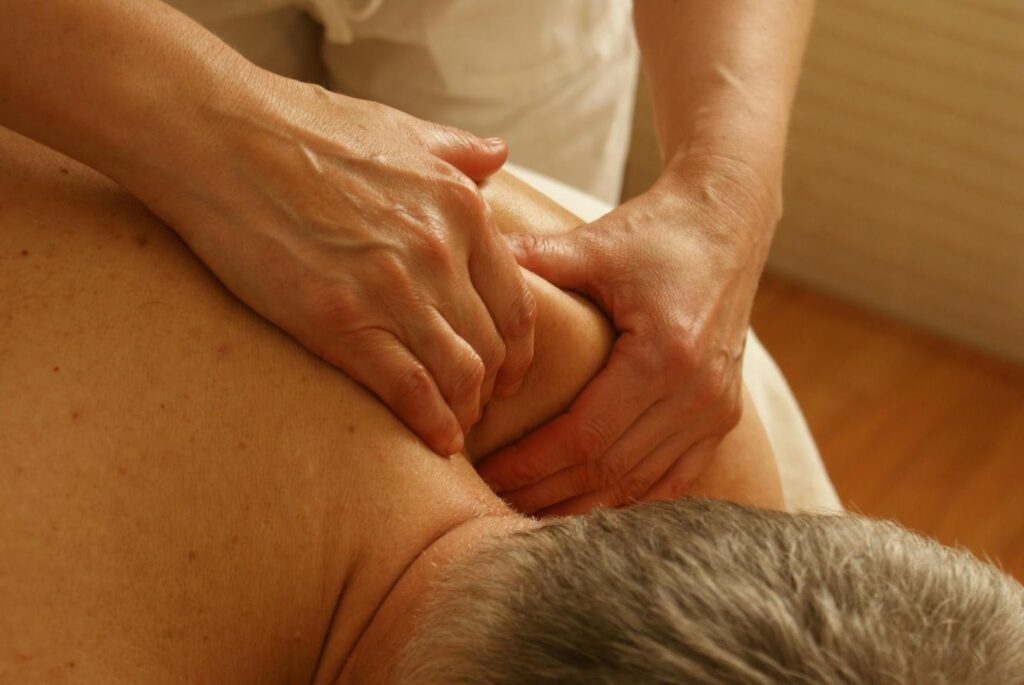Working out is really good for us, and the more often we work out, the healthier we will generally be, and the bigger gains we are likely to see. Of course. The body does need time to recover too, and that means that we should take a day or two out each week if we want to be healthy and avoid injuries. The thing is, for many of use, recovery time takes much longer than that, and we find ourselves losing days at a time while out body struggles to feel better.
It doesn’t have to be that way! Here are 14 things that will make recovery times much faster than ever before:
1. Stretch It Out (But Do It Right)
Stretching isn’t just something you do half-heartedly at the end of a workout because your gym teacher told you to. Done properly, it can really help speed up your recovery. Dynamic stretching before your workout and static stretching afterward can prevent tightness and reduce muscle soreness. Think of it as a little thank-you gift to your muscles for all the hard work they’ve just done.
Key tip: Focus on areas that get the most love during your workout. If you’ve been squatting for days, give those hamstrings and quads some extra TLC. And don’t rush it – stretching is meant to relax you, not leave you bouncing around like a spring-loaded rubber band.
2. Foam Rolling: Love It or Hate It, It Works
Foam rolling might feel like some form of medieval torture, but trust us, it’s worth the discomfort. Rolling out your muscles can help break down lactic acid build-up, reduce muscle tightness, and improve blood flow, all of which will help you recover faster. Plus, there’s something oddly satisfying about hearing those pops and cracks as you roll over those tight spots.
Invest in a decent foam roller (trust us, the extra spikey ones work wonders) and make it part of your post-workout routine. Just grit your teeth and know that the temporary pain will result in a lot less long-term stiffness.
3. Stay Hydrated Like It’s Your Job
You might think hydration is only important during a workout, but keeping those water levels up afterward is just as crucial. Water helps flush out toxins, reduce muscle cramps, and keeps your joints lubricated. Plus, dehydration is the enemy of recovery – it’ll slow you down and keep those muscles tight and unhappy.
A good rule of thumb? Drink at least 16–20 ounces of water post-workout (or more if you’ve been sweating buckets). For an extra recovery boost, throw in some electrolytes to replace what you lost through sweat. And yes, that means water, not coffee. Sorry.
4. Ice Baths: A Chilly Wake-Up Call for Your Muscles
Taking a dip in an ice bath might sound like the last thing you want to do after a tough workout, but it can be a game-changer for recovery. Cold therapy helps reduce inflammation, numb sore muscles, and constrict blood vessels, which can reduce swelling and speed up the healing process. Plus, it’s basically the athlete’s secret weapon for bouncing back faster.
If you’re not quite ready to dive into a full-on ice bath, even a cold shower can help. But if you’re feeling brave, grab a bag of ice, fill the tub, and prepare for a few chilly minutes that will pay off in recovery gold.
5. Recovery Boots: Compression Magic for Runners (And Everyone Else)
If you’re serious about recovery, recovery boots for runners should definitely be on your radar. These high-tech compression boots use air pressure to massage your legs, increase blood flow, and speed up the removal of metabolic waste from your muscles. Basically, they give you a professional-level massage at home – without having to pay someone to pummel your legs.
They’re especially popular with runners, but anyone who puts their legs through the wringer (hello, leg day enthusiasts!) will benefit from these. Slip them on, relax for 20 minutes, and let the boots do the hard work for you. It’s like a spa day for your legs, minus the cucumber water.
6. Get Your Protein Fix
You’ve probably heard this a million times, but we’re going to say it again: Protein is crucial for recovery. After a workout, your muscles are basically crying out for fuel to repair and rebuild, and protein is exactly what they need. Whether you’re into protein shakes, bars, or just a solid meal with lean meat, eggs, or tofu, make sure you’re getting enough to help your body bounce back faster.
The magic number? Aim for around 20–30 grams of protein within 30 minutes to an hour after your workout. It’ll give your muscles the building blocks they need to repair those tiny tears (which, by the way, is what’s making you sore in the first place).

7. Get Moving (But Gently)
This might sound counterintuitive, but one of the best ways to recover from a tough workout is… more movement. Now, we’re not saying go for another full-on workout, but a little active recovery can do wonders. Think light walking, swimming, or cycling to keep the blood flowing and help your muscles recover without the strain of a hard session.
It’s like giving your muscles a gentle reminder to keep working without overdoing it. Plus, it can help loosen up any tight spots and reduce that “I can’t sit down” feeling after leg day.
8. Sleep: The Underrated Recovery Hero
If you’re not getting enough sleep, all the recovery hacks in the world won’t help you. Sleep is when your body does most of its repair work, so if you’re skimping on shut-eye, your muscles won’t have enough time to heal properly. Aim for a solid 7–9 hours of sleep a night, and your body will thank you.
Pro tip: If you’re having trouble sleeping because of sore muscles, try a magnesium supplement or take a warm bath before bed to relax your muscles and prepare your body for rest. Sleep might not be as exciting as recovery boots, but it’s essential if you want to bounce back faster.
9. Anti-Inflammatory Foods Are Your Friends
The phrase “you are what you eat” is annoyingly accurate when it comes to recovery. Anti-inflammatory foods like berries, leafy greens, nuts, and fatty fish (hello, salmon!) can help reduce muscle soreness and promote faster recovery. And don’t forget about spices like turmeric and ginger – they’ve got anti-inflammatory properties that work wonders on those achy muscles.
So, load up your plate with these recovery-boosting foods, and you’ll be helping your body heal from the inside out. Bonus: they’re delicious and healthy, so your whole body benefits.
10. Massage: Because Who Doesn’t Love a Good Rubdown?
Okay, we all know getting a massage is a treat, but it’s also a seriously effective way to speed up your recovery. Massages help increase blood flow, reduce muscle tension, and flush out toxins, making them the ultimate recovery tool. If you can swing it, book yourself a professional sports massage after a tough workout – your muscles will feel like new.
If that’s not in the budget (because let’s be real, massages aren’t cheap), invest in a good massage gun or ask your partner for a little DIY massage therapy. Either way, your muscles will appreciate the extra love.
11. Epsom Salt Baths: Soak Away the Soreness
If you’re looking for a relaxing way to ease post-workout soreness, an Epsom salt bath is your answer. The magnesium in the salts gets absorbed through your skin, helping to reduce muscle cramps and stiffness while promoting relaxation. It’s the ultimate “treat yourself” moment after a tough gym session, and you’ll feel like a new person when you step out of that warm, soothing bath. Light a few candles, add some calming essential oils, and you’ve got yourself a full-blown spa experience.
12. Compression Garments: Fashion Meets Function
While recovery boots are great, compression garments (like leggings, socks, and sleeves) offer a more wearable option that you can use during and after your workout. They work by improving blood flow and reducing muscle vibrations, which can lead to less soreness and quicker recovery. And hey, if you like the snug feeling of these garments, you can wear them all day – no judgment here!
13. Post-Workout Yoga
While foam rolling and stretching are great, consider adding a short post-workout yoga session to your routine. Yoga helps stretch and lengthen your muscles, improves flexibility, and increases blood flow, all of which help with faster recovery. Plus, it’s a great way to de-stress after a tough workout!
14. Listen to Your Body
This one might seem a bit obvious, but it’s often overlooked. Sometimes, the best way to speed up recovery is to listen to your body. If something feels off or unusually sore, give yourself permission to rest. Overtraining is a real thing, and it can lead to injury if you’re not careful. Take that rest day, stretch out, and come back stronger. Your body will thank you in the long run.
Recovery needs to happen, but you can speed it up a bit, if you are careful and if you do the above. So, you can get back out there doing what you love the most, faster than ever before!



